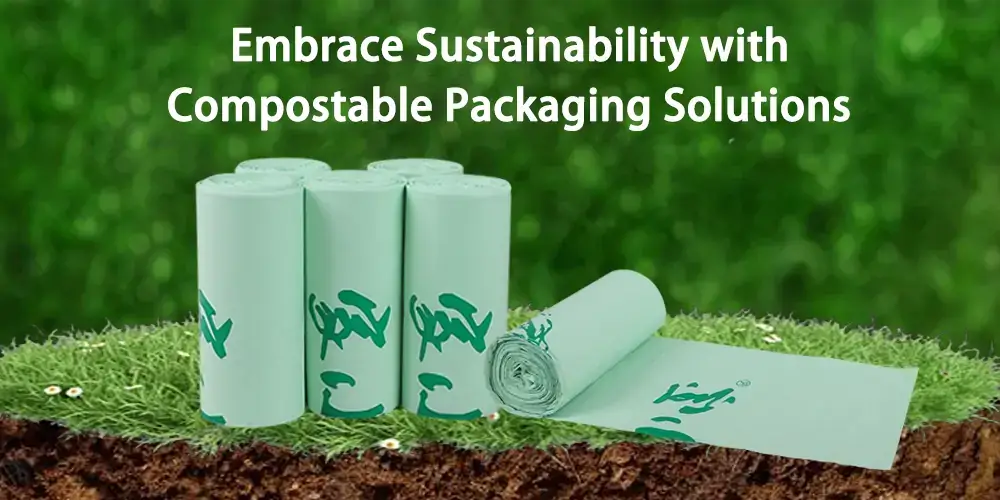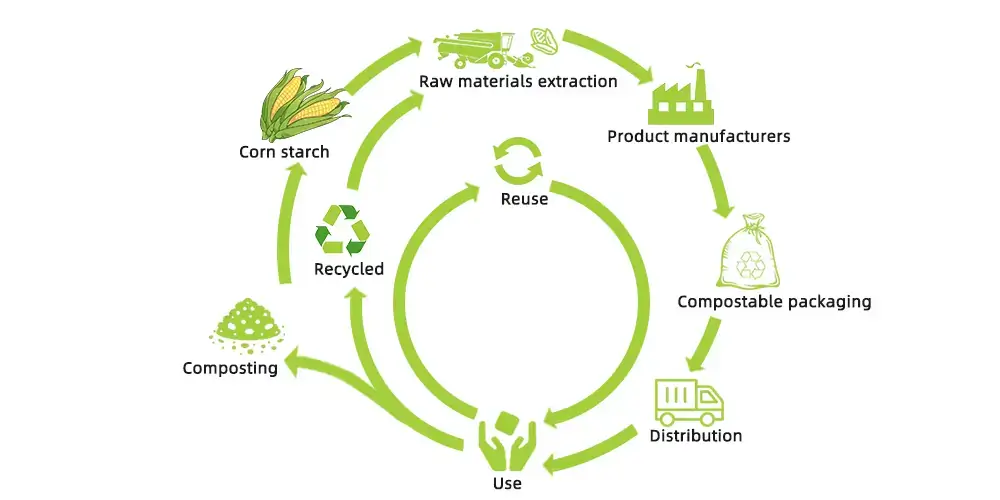
In the battle against plastic pollution, compostable packaging bags offer a sustainable alternative. These bags biodegrade into water and carbon dioxide, seamlessly returning to the natural cycle. Their diverse applications help significantly reduce plastic waste and promote sustainability across various industries.
Sustainable Packaging Solutions for A Greener Future
Compostable bags are crafted from renewable materials such as bioplastic film and corn starch. The bioplastic manufacturing process consumes fewer resources and emits less carbon compared to traditional plastic production. Additionally, biodegradable and compostable bags reduce the use of disposable products, minimizing overall waste.
Notably, compostable plastic bags leave no toxic residue. Under composting conditions, they degrade into fertile soil, benefiting soil health and plant growth. Thus, compostable packaging positively impacts the ecological cycle.

At ShinHigh, we produce 20,000 tons of compostable raw materials and finished bags annually, contributing to the reduction of plastic pollution and fostering a greener future. Our scrap recycling machines pulverize, melt, and reprocess biodegradable materials, minimizing resource waste and enhancing product utilization. We are dedicated to exploring new technologies to create more sustainable packaging solutions, improving community environments, and promoting a sustainable future.
Reducing Waste and Promoting Sustainability in Various Industries
-
Food Industry
Compostable bags are essential in the food industry, reducing waste and promoting sustainability. Ideal for food packaging and storage, they extend the shelf life of perishable items while being biodegradable and compostable. By adopting compostable bags, food manufacturers and retailers can minimize their environmental impact and contribute to a circular economy. Using compostable bags for food waste collection diverts organic waste from landfills, transforming it into valuable compost that enhances soil fertility and supports sustainable farming practices.
-
Retail and E-commerce
Incorporating sustainability into retail and e-commerce operations is achievable by offering compostable shopping bags and packaging materials. These eco-friendly alternatives reduce plastic waste generated from retail activities. Encouraging customers to use reusable bags or providing compostable options fosters an environmentally responsible culture. Additionally, using compostable packaging for shipping goods reduces the carbon footprint of retailers, demonstrating a commitment to sustainable practices throughout their supply chain.
-
Agriculture
Compostable bags are valuable tools for waste reduction and sustainability in agriculture. They can be used for soil amendment, mulching, moisture retention, and weed suppression. By utilizing compostable bags, agricultural workers can improve soil fertility and reduce reliance on fertilizers, thus creating a beneficial ecological loop.
Conclusion
In conclusion, compostable bags, with their sustainable development features, play a crucial role in mitigating environmental pollution, fostering resource recycling, and advancing eco-friendly agricultural practices. They are indispensable sustainable packaging solutions for various industries.
For further details or inquiries about purchasing compostable bags, please contact our expert team dedicated to providing high-quality sustainable packaging solutions aligned with your environmental goals.
